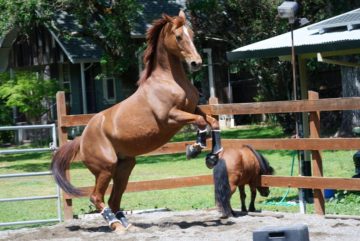Hello from Eponaquest,
We have been working to reschedule programs postponed by the ever-changing coronavirus situation around the world. Linda and Dr. Rebecca Bailey have announced the new dates for the Healing the Herd: Connection Focused Therapy (Germany) program — September 16-20, 2020. The information for this program and the new dates for other rescheduled workshops will be posted to the website shortly.
In the meantime, Rebecca has shared some advice about Covid-19 and safety at the barn and we’d like to pass that on to you (see below).
Wishing everyone safety, good health, and peace during these challenging times.
Sue Smades
Eponaquest Office Manager
COVID-19 and the Horse Barn
In the coming days, most of the country will likely be facing what those of us in California are managing today. We are being asked to “shelter in place”. This means we are being asked to stay in our homes for all but “essential” activities. Now, arguably too many of us, essential activities include seeing and caring for our horses. Because not everyone in the non-horse world would agree with our definition of essential, it is up to each of you to discover the parameters of legally leaving your house. If the pandemic continues to spread you can bet that it may get harder and harder to justify a trip to the barn. In some areas, it may be considered illegal. But let’s just say for today you have a green light to go to the place you love the best.
Here’s what you need to know if you go:
Covid-19 does not seem to affect horses. But being with horses does not magically protect you. In fact, it is likely that when we are in our happy place we can lose focus and forget to take precautions we might do elsewhere.
- Most of us know that the virus can stay alive on surfaces which includes all tack, halters, lead ropes, brushes, buckets, scissors, hay hooks, feed bins, pitchforks, shovels, wheel barrel handles, buckets, horse treats and anything you or anyone else touches.
- Don’t forget stall doors, railings, chairs, benches, jump standards, poles, hooks, hats, crops, etc, etc, etc.
- Covid-19 can be on the bottom of your shoe or boot, on your jacket, shirt, and chaps.
- Other high-risk areas include doorknobs, coffee pots and of course toilets and sinks.
What can you do?
- Wear gloves, rubber gloves or ones that can be easily disinfected. Treat your gloves the same way as your hands.
- If you are spending a day at a barn consider wearing a mask, especially if you feel you may have symptoms. It may also serve as a reminder not to touch your face.
- Touching your face is easy to do when you are distracted by engaging activities. Be mindful at all times.
- Wash your hands carefully before and after engaging in any activity at the barn.
- Do not share equipment. Any equipment. Sharing is good but not today and probably not tomorrow.
- If you wore gloves take them off before getting in your car. Throw them out if they are disposable or disinfect them before putting them in your car (preferably in a plastic bag).
- When you get home, dip the bottom of your feet in bleach water before entering the house. Leave your shoes outside.
- Throwing your clothes in the dryer on hot should kill the virus but you may consider washing them as well.
A word for barn managers and horse assistants:
- Be sure to have plenty of disinfectants available in multiple locations. This includes gates into the property.
- Hand towels should be paper and an appropriate closed trash receptacle should be provided. This is not a time to share cloth towels.
- Be sure to wear gloves when emptying the trash.
- Horse handlers, barn assistants and trainers and TF staff should wear either rubber gloves or gloves that can be disinfected. Disinfection needs to occur throughout the day. It is important that clear communication should occur regarding expectations for washing hands and wearing gloves.
- Seriously consider that masks should be worn by horse handlers and assistants. A sneeze or cough could potentially transmit the virus into the hair of the horse.
- Trainers, please remember that 6 feet of social distance applies even at barns. If for safety reasons you need to be closer to your client remember it’s at a risk for both of you, as well as for the community at large. Minimize the risk if you must with masks and gloves.
- If your owners or riders can’t come to the barn due to the sequestering, consider sending videos or posting on social media pictures of their horses being carefully loved and taken care of. That in itself can help the isolation of sequestering.
Lastly, we need to stay calm and remind ourselves that we can keep ourselves and others safe. Please follow guidelines published by the medical experts. Take this seriously as we attempt to flatten the curve. Blame me later if this turns out to be too much. Prove me wrong by keeping the virus away from your barn.
Dr. Rebecca Bailey Ph.D.
drbailey@transitioningfamilies.com
